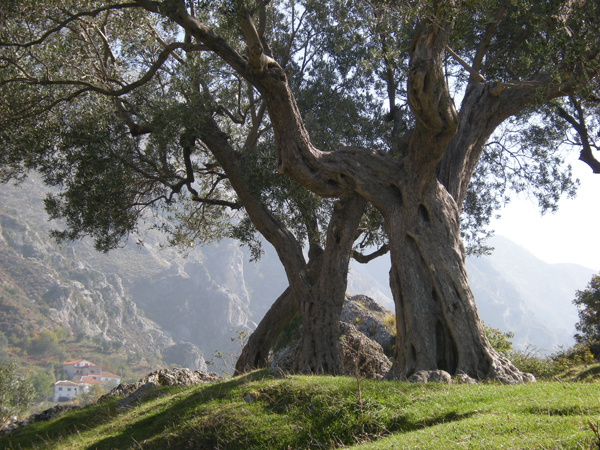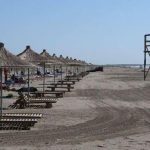TIRANA, Feb. 21 – Olives, watermelon and nuts are the top three agricultural products that Albania can decently compete with to tap export markets despite a series of obstacles in place preventing the competitiveness of Albania’s agriculture, according to a World Bank study.
While the identified frontrunners are not the top fruit and vegetable products that Albania currently exports, World Bank experts suggest Albania can take advantage in switching efficient production to olives, watermelon and nuts, three products that are already increasingly entering regional and EU markets.
Currently, medicinal and aromatic plants and fresh vegetables are the top two agricultural products that Albania exports.
However, due to binding constraints that hamper the competitiveness of the Albanian agriculture sector as a whole, experts say Albania will find it difficult to tap regional and EU markets.
“Albania’s inability to compete is due to two binding constraints: excessive land fragmentation and producers’ inability to achieve necessary economies of scale; and an unskilled workforce and low-technology production process that leads to gross inefficiencies throughout the production process. Furthermore, Albania’s quality certification processes are insufficient for export to the EU-28, as well as usually too costly for smallholders,” says the study.
Agriculture is a key sector of the Albanian economy that employs about half of the country’s population but which due to its poor productivity provides only about a fifth of the national output.
Unclear property titles for around half of the country’s agricultural land is a key barrier for the development of larger farms and access to local and EU subsidies that could make Albania’s products much more competitive.
In addition to land fragmentation, poor financing, insufficient subsidies and lack of key infrastructure such as irrigation as well as a high tax burden are a serious problem for Albania’s agriculture sector, with high costs often making local products uncompetitive.
Olive oil
The World Bank study suggests that Albania can be quite competitive in olive oil export market following increased production after subsidizing the planting of nine million trees from 2009 to 2015.
“Albania is the production leader in the Western Balkans, but its production currently stands at 0.6% of EU-28 oil production (the market leader) and is unable to meet domestic demand,” says the study.
“However, this significantly increased production base is not expected to reach its full productive potential because farming practices in Albania remain inefficient, increasing the cost of maintaining olive orchards and reducing their yield,” it adds.
Due to excessive fragmentation of agriculture land and an average olive orchard size estimated at 0.2 to 0.4 hectares in 2012, World Bank experts say that Albania cannot produce in sufficient volumes to be a significant player in the EU-28 market.
“With inefficient production and inability to benefit from economies of scale, Albania will continue to produce small volumes of olive oil at a relatively high price. A focus on the high-end organic olive oil market, which favors quality over volume, would be recommended, but noted that, while around two-thirds of Albania’s olive orchards are believed to be organic, only about 1 percent of orchards, or 515 hectares, are certified as such. Further, Albanian producers face regulatory and certification constraints and a lack of both agronomic knowledge and knowledge of the EU market for high-end foods,” says the World Bank.
Watermelon
Watermelon is one of Albania’s strongest performing fruit and vegetable exports, but its export reach is limited almost entirely to other countries in the Western Balkans, with neighboring Kosovo receiving the lion’s share of around two-thirds of total exports, according to the World Bank study.
“Watermelon has a short shelf life and its production is labor-intensive and sensitive to weather conditions, so Albania’s low wages, favorable climate and location make it a great candidate to supply the booming EU 28 watermelon market. Furthermore, Albania is geographically well-suited to producing early season watermelon, which sells at a premium. While shipping costs for Albanian watermelons are lower than for Albania’s direct competitors, inefficient logistics and production practices ensure that Albania’s product loses out against the market leader, Greece, in quantity and quality produced,” says the study.
World Bank experts suggest Albanian producers must close quality certification gaps, use more efficient production methods and grow in-demand varieties (such as seedless or mini fruit) in order to become competitive.
“EU fruit and vegetable value chains are dominated by big retailers that expect high quality with 24-hour turnaround on orders. Fortunately, watermelon is one of the easiest crops to package and certify. Upskilling the workforce and providing capital investment in order to grow more technology-intensive modern varieties may, however, prove difficult,” adds the study.
Nuts
While the global market for nuts is expected to expand at an annual rate of more than 5 percent by value over the next 10 years, the World Bank analysis identifies walnuts, hazelnuts, and chestnuts as potential high-value Albanian exports, but finds that becoming competitive in this value chain will require significant effort.
“Albanian nut production is dominated by smallholders lacking skills and resources; with the exception of chestnuts, production is insufficient even to meet domestic needs. However, nut production has been growing, mainly due to government-subsidized recent plantings that are now beginning to bear fruit,” says the World Bank study.
“Albania’s greatest challenge in these value chains is achieving volumes that are significant enough to compete in the global market. The main challenge is land fragmentation, which impedes technological improvements and economies of scale,” it adds.
Prospects ahead
As the domestic market for many of the agricultural products is saturated, Albanian fruits and vegetables have been gaining ground in the Western Balkans and are well positioned to make headway in the EU-28 market as well, the World Bank predicts.
“However, Albanian producers face many constraints in meeting the rigid and complex demands of the EU market, constraints that an export strategy focused solely on identifying products for export is unlikely to change. The policy paradigm has shifted to approaches that focus on integrating local industries into global value chains that help facilitate technology transfer and create jobs,” says the study.
Albania is heavily dependent on its agricultural sector, which accounts for 20.3 percent of GDP, 49 percent of employment and 8.5 percent of total exports. The fruit and vegetable sector represents 20 percent of Albanian agriculture but contributes 36 percent of its exports and this share is expected to increase.










